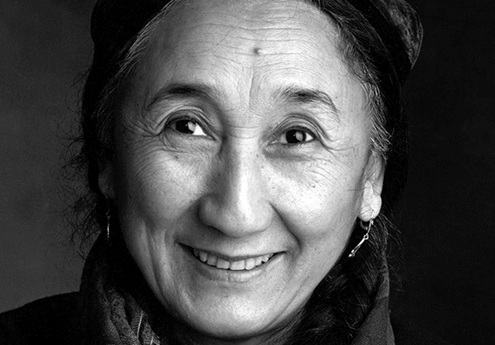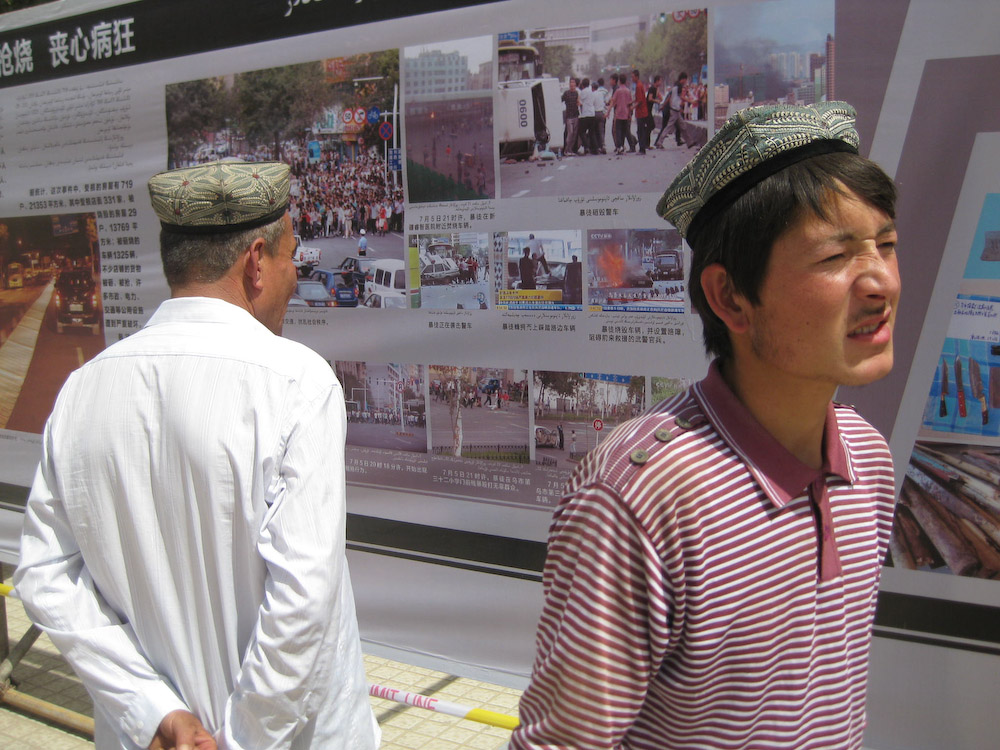On December 19, 2009, Cambodia deported 21 Uyghur asylum seekers to China, including a pregnant woman and her two young children. Chinese authorities have refused to publicize information about the deportees despite international inquiries and Chinese officials’ promises to deal transparently with the Uyghurs’ cases upon their return. However, news of the whereabouts and fate of the returned Uyghurs are now starting to emerge. Rebiya Kadeer, the 2004 Rafto Prize laureate, has used her freedom since her release from the Chinese prison in 2005 to raise the issue of the repression Uyghurs face and their struggle for human rights.
Deported Uyghurs sentenced to prison
 According to Radio Free Asia (RFA), four of the deported Uyghurs have been sentenced to prison terms from 16 to 20 years by Chinese courts during closed trials: Ilyar Hamut (jailed for 20 years), Musa Muhamad (17 years), Helil Abdugheni (16 years) and Abduqadir Abdugheni (16 years). Another three of the extradited Uyghurs – Mutellip Mamut, Nurahmet Kudret and Islam Urayim – are believed to have been sentenced to life in prison. ”These sentences highlight the urgent need to ensure the safety of Uyghur asylum seekers and prevent their deportation. In the last couple of years we have witnessed several cases where Uyghur asylum seekers are being extradited to China from Central Asian and East Asian countries” said Therese Jebsen, executive director of the Rafto Foundation.
According to Radio Free Asia (RFA), four of the deported Uyghurs have been sentenced to prison terms from 16 to 20 years by Chinese courts during closed trials: Ilyar Hamut (jailed for 20 years), Musa Muhamad (17 years), Helil Abdugheni (16 years) and Abduqadir Abdugheni (16 years). Another three of the extradited Uyghurs – Mutellip Mamut, Nurahmet Kudret and Islam Urayim – are believed to have been sentenced to life in prison. ”These sentences highlight the urgent need to ensure the safety of Uyghur asylum seekers and prevent their deportation. In the last couple of years we have witnessed several cases where Uyghur asylum seekers are being extradited to China from Central Asian and East Asian countries” said Therese Jebsen, executive director of the Rafto Foundation.
“Free trails”
 Sophie Richardson of HRW aid the Chinese government must say where the group are being held and under what status as well as allowing the UN and family members to see them. “Family members have the right to know what has happened to their loved ones,” she said “The Chinese government must treat all returnees humanely, ensure fair trials, and not persecute individuals for activities and speech that are protected under international law.”There has been no immediate comment from the Chinese foreign ministry.The Uighurs fled Xinjiang after July’s violent ethnic clashes in the provincial capital Urumqi which left at least 97 people dead.Most of those killed in the unrest were majority Han Chinese, according to officials, and Urumqi’s Han population had demanded swift justice.
Sophie Richardson of HRW aid the Chinese government must say where the group are being held and under what status as well as allowing the UN and family members to see them. “Family members have the right to know what has happened to their loved ones,” she said “The Chinese government must treat all returnees humanely, ensure fair trials, and not persecute individuals for activities and speech that are protected under international law.”There has been no immediate comment from the Chinese foreign ministry.The Uighurs fled Xinjiang after July’s violent ethnic clashes in the provincial capital Urumqi which left at least 97 people dead.Most of those killed in the unrest were majority Han Chinese, according to officials, and Urumqi’s Han population had demanded swift justice.
UN Refugee Convention
This is contrary to the principle enshrined in the UN Refugee Convention which prohibits persons to be extradited to countries where they may be maltreated or face persecution. Both Cambodia and China are signatories to this convention. The Rafto Foundation is concerned about the pressure China puts on Asian countries to repatriate Chinese nationals.
Rafto calls on the Norwegian MFA  The Rafto Foundation urges the Norwegian Ministry of Foreign Affairs to raise the issue with their Chinese counterparts and express concern over the 21 deported Uyghurs. Further, the Rafto Foundation calls on the Norwegian government to urge countries like Cambodia, Laos, Thailand, Malaysia, Burma, Pakistan and Kazakhstan to refrain from deporting Uyghur asylum seekers back to China. The Rafto Foundation has long been worried about the persecution of Uyghurs in northwestern China. The Uyghurs are of Turkic descent, mostly Muslims, and has long been oppressed. The space for independent expression of Uyghur cultural or religious identity is dangerously narrow. Human rights organizations have documented enforced disappearances, arbitrary arrest and ill-treatment of Uyghurs, including torture.
The Rafto Foundation urges the Norwegian Ministry of Foreign Affairs to raise the issue with their Chinese counterparts and express concern over the 21 deported Uyghurs. Further, the Rafto Foundation calls on the Norwegian government to urge countries like Cambodia, Laos, Thailand, Malaysia, Burma, Pakistan and Kazakhstan to refrain from deporting Uyghur asylum seekers back to China. The Rafto Foundation has long been worried about the persecution of Uyghurs in northwestern China. The Uyghurs are of Turkic descent, mostly Muslims, and has long been oppressed. The space for independent expression of Uyghur cultural or religious identity is dangerously narrow. Human rights organizations have documented enforced disappearances, arbitrary arrest and ill-treatment of Uyghurs, including torture.
Related stories
China extends its influence over dissidents
Uyghar students expelled for religion, difficult life for relatives of political prisoners





